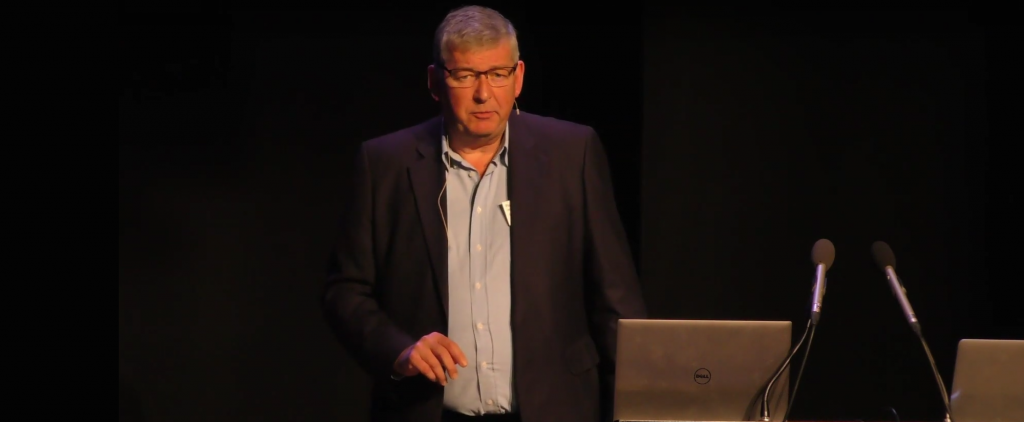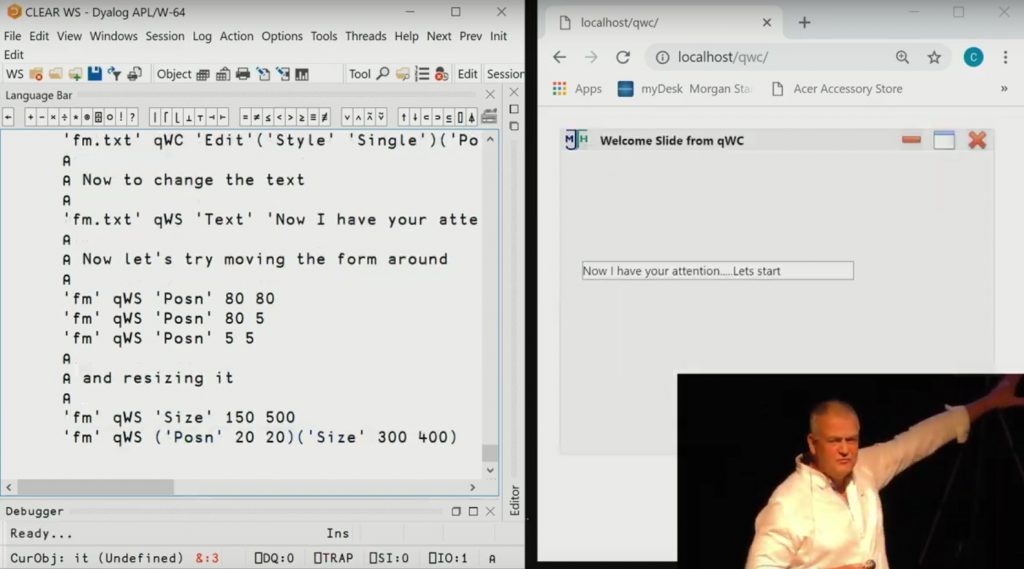Welcome to week 4 of the Dyalog ’19 recordings! This week, Tommy Johannesen of Jersie Data tells us about an interesting application that he has written in Dyalog APL. In the Copenhagen area, many school children are “fed with APL” in the sense that Tommy’s APL system connects the parents of ten thousand hungry children to about 60 vendors of school lunches. The service currently handles about 100,000 users with a system that runs under IIS and uses Dyalog as an ASP.NET implementation language. Each year 10,000 children leave after 10 years at school and another 10,000 enter grade 0; over the 30 years that Tommy has been in business, he has served more than a quarter of a million users.

Tommy Johannesen of Jersie Data ApS
Peak time is Sunday evening, when parents and children log on to order meals for the coming week. Tommy tells the story of how he has been struggling with a memory leak that caused some user requests to fail when loads grew large; obviously not a good thing! Since upgrading to Dyalog version 17.0 he has been chasing this problem together with John Daintree – it was not completely solved at the time Tommy was at Dyalog ’19, but I am happy to be able to report that we believe it finally bit the dust in October!
The other two recordings in week 4 are centred around the topic of source code management. First, Adám Brudzewsky and I introduce the tool called “Link” which is included with version 17.1. Link creates a link (hence the name) between each function (or other “code object”) in an active workspace and a corresponding text file. The namespace structure of the workspace corresponds to the directory structure that the workspace is linked to. Changes made to either side of such a link – to code in the workspace or to files outside it – are immediately reflected on the other side.

Paul Mansour demonstrates Git integration with AcreTools
The intention of a tool like Link is to enable the use of source code management systems like SVN or Git to manage source in the form of text files. These source code management systems allow the implementation of many different “workflows”, defined by parameters like how branches are used, how frequently merges are done, and how conflicts are handled. Git allows a lot of freedom, which many small teams (and that includes one-man-bands ?) don’t need. Immediately following the talk on Link, Paul Mansour took the stage at Dyalog ’19 to talk about tools that he has developed to implement a simple but effective Git workflow, suitable for many APL projects.
Summary of this week’s videos:


 Follow
Follow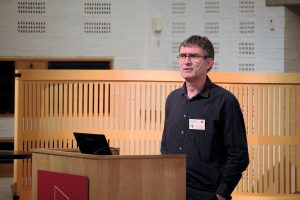
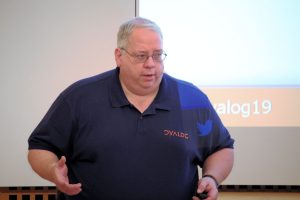

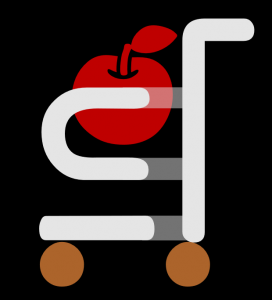
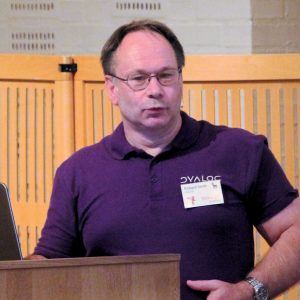
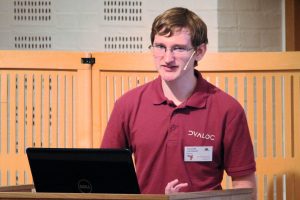

 2019 is the first “Year of the Hammer”: after seven years of Norse wyrms and seven years of Viking ships, we were now entering the era of seven hammer-inspired logos. As Gitte explains in her talk, we are celebrating the first year under Thor’s Hammer by making Dyalog APL freely available for non-commercial use – without requiring registration – under Microsoft Windows, Apple macOS and GNU/Linux (including a collection of public Docker images). The intention is to make APL much more easily accessible for experiments – especially in the cloud!
2019 is the first “Year of the Hammer”: after seven years of Norse wyrms and seven years of Viking ships, we were now entering the era of seven hammer-inspired logos. As Gitte explains in her talk, we are celebrating the first year under Thor’s Hammer by making Dyalog APL freely available for non-commercial use – without requiring registration – under Microsoft Windows, Apple macOS and GNU/Linux (including a collection of public Docker images). The intention is to make APL much more easily accessible for experiments – especially in the cloud! After last year’s Technical Road Map, which was almost entirely a live demonstration of using APL with modern development tools like Git, VS Code and Docker, I decided to play it safe this year and do no demos at all in my keynote. Instead, I concentrated on explaining some of our thoughts about making Dyalog APL easier to discover, learn and integrate into modern frameworks and development processes – and making applications written in APL easier to deploy and maintain. As a result, despite the world premiere of our new Webinar Jingle, composed by Stefano Lanzavecchia (
After last year’s Technical Road Map, which was almost entirely a live demonstration of using APL with modern development tools like Git, VS Code and Docker, I decided to play it safe this year and do no demos at all in my keynote. Instead, I concentrated on explaining some of our thoughts about making Dyalog APL easier to discover, learn and integrate into modern frameworks and development processes – and making applications written in APL easier to deploy and maintain. As a result, despite the world premiere of our new Webinar Jingle, composed by Stefano Lanzavecchia (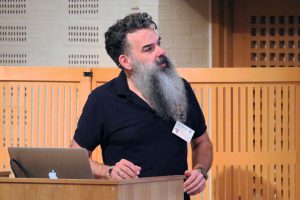 The title of John’s talk was “Cor(e) Blimey!”. The Cor(e) is of course a reference to Microsoft’s “.NET Core” but if English is not your first language, the title of John’s talk may need a little explanation. “Cor blimey” is an exclamation of surprise, a euphemism derived from “God Blind Me”. In this talk, John explains how Dyalog is poised to provide a bridge to Microsoft’s new portable, open source version of .NET. Scheduled for release with Dyalog version 18.0 next year, this will provide APL users with access to a vast collection of libraries under Linux and macOS, in addition to Windows.
The title of John’s talk was “Cor(e) Blimey!”. The Cor(e) is of course a reference to Microsoft’s “.NET Core” but if English is not your first language, the title of John’s talk may need a little explanation. “Cor blimey” is an exclamation of surprise, a euphemism derived from “God Blind Me”. In this talk, John explains how Dyalog is poised to provide a bridge to Microsoft’s new portable, open source version of .NET. Scheduled for release with Dyalog version 18.0 next year, this will provide APL users with access to a vast collection of libraries under Linux and macOS, in addition to Windows.
